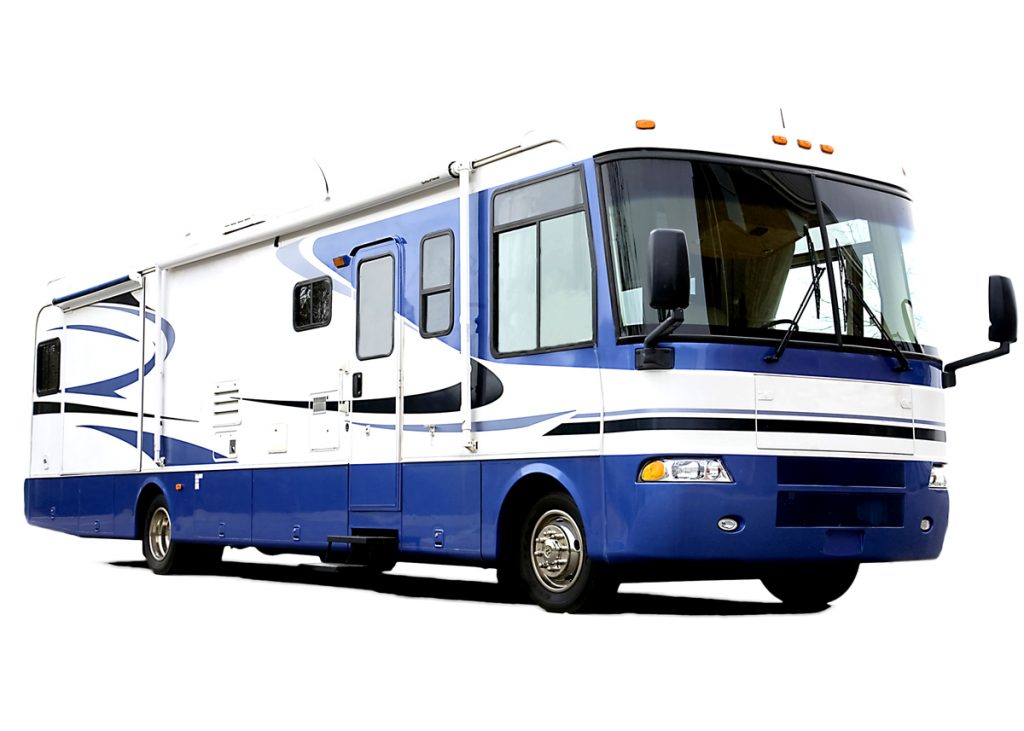Used RV
Shopping for a Used RV: When you’re on the hunt for a new-to-you used RV, it pays to do a bit of thoughtful shopping. The first question to ask yourself is a fun one: what type of RV fits your lifestyle best? A gas or diesel motorhome, toy hauler, tagalong trailer, popup camper, camper van, or a fifth wheel? Are slide outs important to you or not? When shopping for your perfect fit in any towable RV, you also have to consider what size/length rig your tow vehicle can comfortably handle. Here are just a few other helpful tips to keep in mind as you shop.
Exterior Inspection: When you do your first exterior walk-around, be sure to pay close attention to the condition of the RV’s skin. With fiberglass skins, you’ll want to look for lamination separation, small fracture lines, buckling, or seam separations. On aluminum-sided rigs, check for small, blister-like spots. They may be concealed by paint, but these raised areas could indicate corrosion. Look for obvious damage like surface dents, scratches, bent fenders, windshield cracks, etc. Check tires and wheels. Are all wheel and tire sizes the same? Are any wheels bent or damaged? Does the axle alignment look “right” front to back and side to side? See how deep the tire’s treads are and check for dry rot, especially on “hidden” inside tires. Not so good? Negotiate!
Check exterior storage compartments for signs of damage. See if the storage bay doors operate easily and if they seat properly when closed. Use this opportunity to look at the area under the floor of the rig, using a flashlight. Note how plumbing lines are run, and see if they’re securely fastened. Look below all water-carrying lines to check for leakage or damage that could have been caused by frozen lines. Check the condition of holding tanks, and if you can, operate the valves of the graywater and blackwater systems to assure they operate smoothly.
If opting for a motorhome, it’s worth your time to inspect the motor, drive train, and chassis as though it were a used car or truck. Take a test drive, checking the smoothness of the transmission, acceleration, the ease of steering, its pulling power on an uphill grade and the responsiveness of the brakes. When you return from your test drive, park in an adjacent space and then check its previous parking spot for oil or transmission fluid leaks.
Quick Interior Review: Check all lights and appliances for proper operation, including the heater and water heater. Check the water pump and flush the toilet if water is available. If possible, run the air conditioner for at least 15 minutes, and see how well it cools. Unfortunately, there’s no sure-fire way to evaluate the condition of an RV refrigerator. However, if the refrigerator has been running for more than a half hour and the freezer portion doesn’t feel cool to the touch, add this item to your “negotiation” list. Also, remember to ask the owner/dealer for the Owner’s Manual and any other paperwork pertaining to your RV and its accessories.
Hit the Road with Campsite Courtesy: Kindness and consideration are important aspects of all our lives, but they’re qualities some people in the modern world don’t necessarily think much about, until they’re on the receiving end of somebody else’s bad behavior. But “do unto others as you would have them do unto you” is one of those cardinal rules of life that really rings true and it’s a simple key to happiness. To get the most out of RVing, take the time to watch your temper and be a good citizen.
Start by observing some simple common courtesies throughout your trip. Whether you’re at a campground, a parking lot, or a rest stop, take the time to put your trash in proper refuse containers. Stay aware of your surroundings and make it a habit to watch your speed when traveling through any confined area like a parking lot, recreational area, park, or campground. Simple courtesy helps make every campground and parking lot a safe and peaceful place for us all.
After arriving at your chosen campground, whether for an overnight visit or for a few days’ stay, introduce yourself to the campground manager. Campground hosts and friendly locals usually know the very best historical sites, restaurants, cafes, antique shops, museums, and interesting, little-known, out-of-the-way places in the area. Just ask, listen, and be willing to learn.
Once you’re comfortably parked at your campsite, remember that a little courtesy goes a long way. If pets are permitted in your campground or resort, walk them only in designated areas and always clean up after them, no matter where you are. When using any free facility, treat it with courtesy and show your appreciation by leaving it just a little bit cleaner than you found it. When preparing to leave, just take an extra moment or two to clean up around your site. And above all, have fun and enjoy yourself, because that’s what the RV lifestyle is really all about: joy and adventure! Happy trails, trailblazers!
